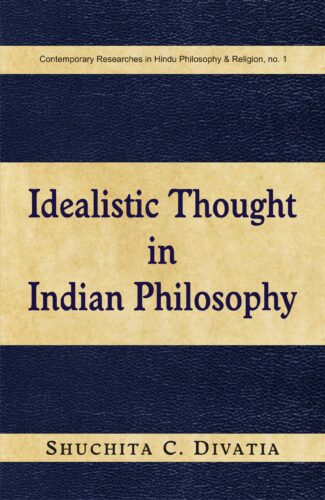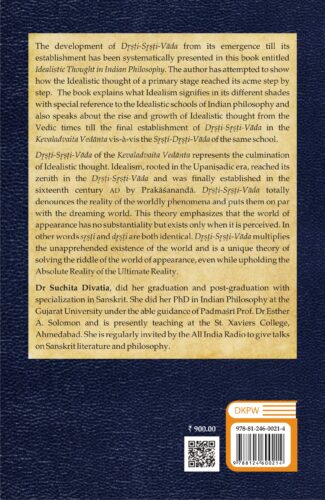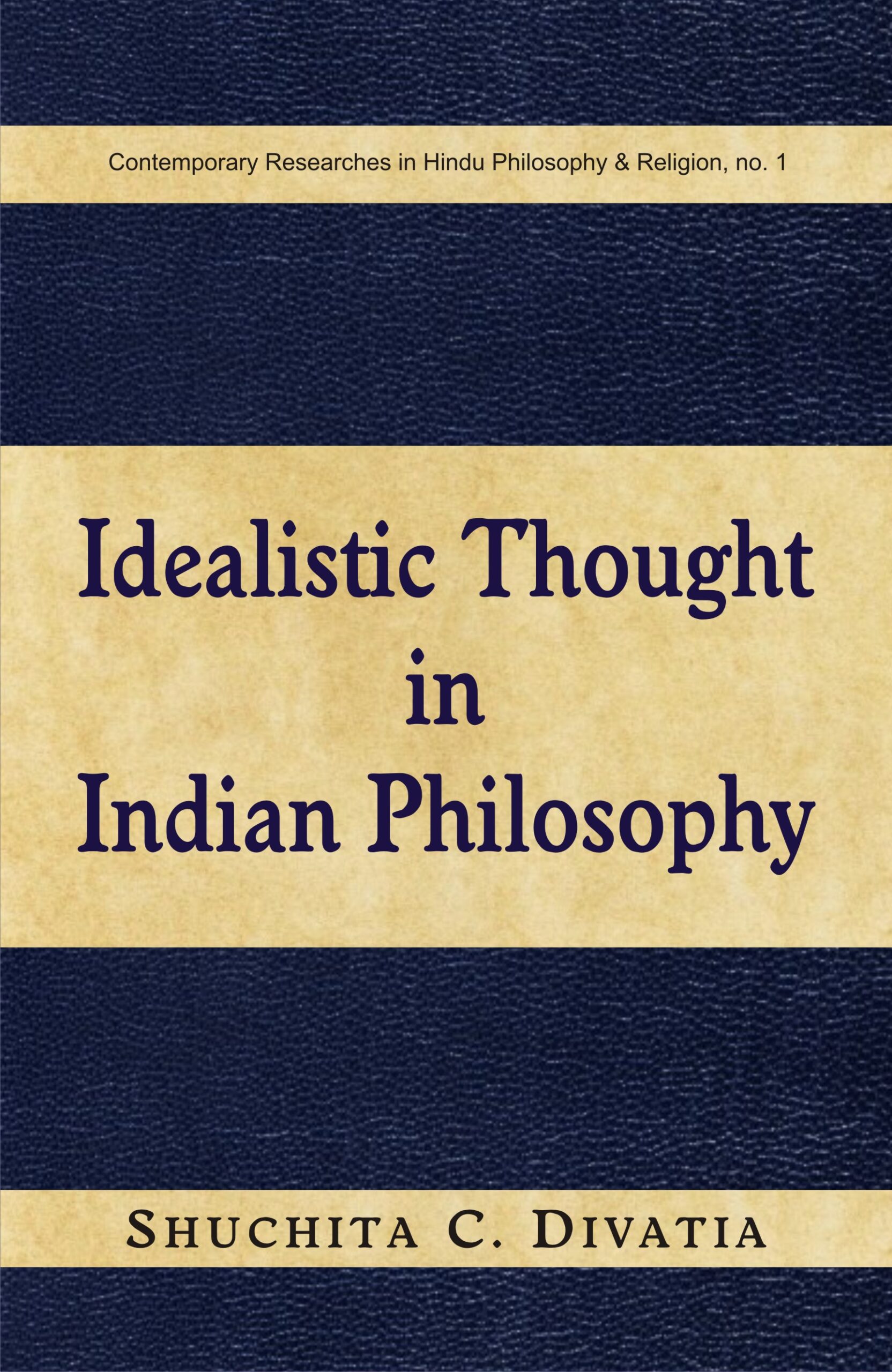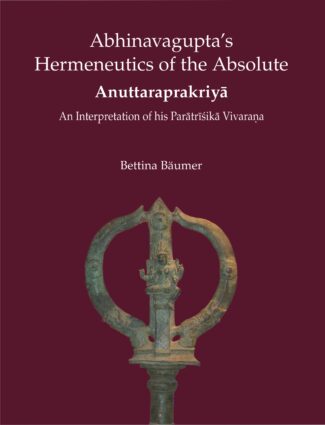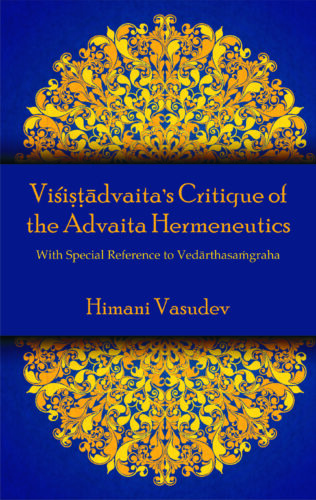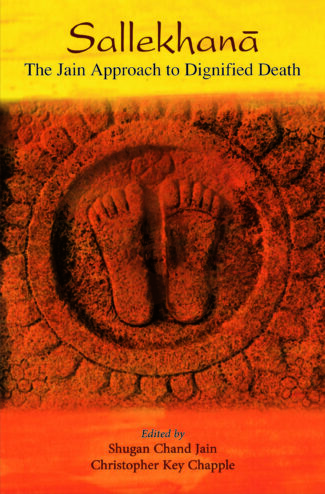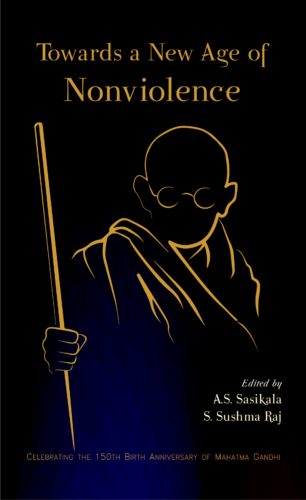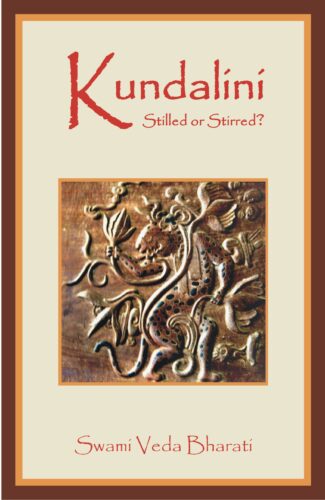

Idealistic Thought i...
Idealistic Thought in Indian Philosophy
Rise and Growth from the Vedic Times to the Kevaladvaita Vedanta up to Prakasananda of 16th century, including as propounded in the Mahayana Buddhism by: Shuchita Yagnesh Mehta (Divatia)Dr. Divatia deals with the rise and growth of Idealistic thought from the Vedic times till the final establishment of Drsti-Srsti-Vada in the Kevaladvaita Vedanta vis-a-vis the Srsti-Drsti-Vada of the same school.
Original price was: ₹900.00.₹810.00Current price is: ₹810.00.
ISBN: 9788124600214
Year Of Publication: 2017
Edition: 2nd
Pages : xiv, 274
Bibliographic Details : Glossary; Bibliography; Index
Language : English
Binding : Hardcover
Publisher: D.K. Printworld Pvt. Ltd.
Size: 23 cm.
Weight: 500
The development of Drishti-Srishti-vada from its emergence till its establishment has been systematically presented in this book entitled Idealistic Thought in Indian Philosophy. The author has attempted to show how the Idealistic thought of a primary stage reached its acme step by step. The book explains what Idealism signifies in its different shades with special reference to the Idealistic schools of Indian philosophy and also speaks about the rise and growth of Idealisitc thought from the Vedic times till the final establishment of Drishti-Srishti-vada in the Kevaladvaita Vedanta vis-a-vis the Srshti-Drishti–vada of the same school. Drishti-Srishti-vada of the Kevaladvaita Vedanta represents the culmination of Idealistic thought. Idealism, rooted in the Upanishadic era, reached its zenith in the Drishti-Srishti-vada and was finally established in the sixteenth century A.D. by Prakashananda. Drishti-Srishti-vada totally denounces the reality of the wordly phenomena and puts them on a par with the dreaming world. This theory emphasiges that the world of appearance has no substantiality but exists only when it is perceived. In other words srishti and drishti are both identical. Drishti-Srishti-vada multifies the unapprehended existence of the world and is an unique theory of solving the riddle of the world of appearance, even while upholding the Absolute Reality of the ultimate Reality.
Preface
Table of Transliteration
Abbreviations
Introduction
1. Idealistic Thought in the Vedas and the Upanishads
The Philosophical Hymns of the Rigveda
Idealistic Views Expressed in the Upanishads
Idealistic Views Expressed in Some Minor Upanishads
2. Idealistic Thought in the Brahma-Sutra
Idealistic Views of the Brahma-Sutra
3. Idealistic Thought in the Madhyamika and the Vijnanavada Schools of Buddhism
Madhyamika Buddhism
Rejection of the Theory of Causation
Confutation of All Concepts
Acceptance of Two-Fold Truth
Yogachara Buddhism: (Vijnanavada)
The Unreality of the World, and the Minds Projecting Power
Idealistic Views Expressed in the Vijnaptimatratasiddhi
External Thing cannot be Proved by Perception
Similarity between the Waking State and the Dreaming State
Refutation of Atomic Realism
World: Transformation of Consciousness
Three-Fold Nature (Trisvabhava)
The Law of Simultaneous Apprehension (Sahopalambhaniyama)
4. Idealistic Thought in the Yoga-Vasishtha
Idealistic Views Expressed in the Yoga-Vasishtha
The World: A Projection of the Mind
The Empirical World: Compared with the Dreaming World
The Theory of Relativity
The Concept of Avidya
The Avidya of Cosmic Soul and the Individual Soul
Monistic Idealism Acosmism
The Actual use of the Term Drishti-Srishti
5. Idealistic Thought in the Gaudapadakarika
Identity and Date of Gaudapada
The Gaudapadakarika
Idealistic Views in the Gaudapadakarika
Resemblance between the Waking State and the Dreaming State
Acosmism (Ajativada)
Refutation of the Theory of Causation
The Minds Constructive Role
6. Idealistic Thought in the Vivekacudamani
Idealistic Views in the Vivekachudamani
Waking State Compared with the Dreaming State
The Concept of Avidya (Maya)
Creative Power of the Mind
Absolute-Monistic Idealism
7. Idealistic Thought in the Brahma-Sutra-Shankara-bhashya
Shankara as a Realist
Shankara as an Absolutist
Adhyasa is Mithya
The Concept of Avidya
Vedic and Worldly Dealings Relegated to the Realm of Avidya
8. Idealistic Thought in the Brahmasiddhi
Mandana Mishra
Idealistic Views Expressed In The Brahmasiddhi
9. Srishti-Drishti-Vada
The Material Cause of the World
Locus (Ashraya) of Avidya
Ekajivavada
Anekajivavada
Brahmashrita-Eka-Avidya-Vada
Aneka-jivashrita-Eka-Avidya-Vada
Anekajivashrita-Aneka-Avidya-Vada
The Srishti-Drishti-Vada
10. Drishti-Srishti-Vada in the Vedanta Siddhanta Muktavali
Jivashrita-Avidya-Vada
Locus of Avidya
Eka-Jiva-Eka-Avidya-Vada
Rejection of Ajnata Satta
Drishti itself is Srishti
Perception
Inference
Verbal Testimony
Rejection of the Theory of Causation
11. Defence of Drishti-Srishti Vada
The Term Drishti-Srishti
Defence of Drishti-Srishti-Vada
12. Resume
Glossary
Select Bibliography
Index


